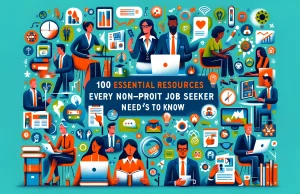In an era where hashtags can launch careers and a LinkedIn profile can replace a resume, the recruitment landscape is undeniably shifting. Social media has emerged as a critical platform for professional networking, personal branding, and now, for finding the next star employee. As a Diversity and Inclusion Manager with a keen eye on the pulse of modern recruitment, I’ve witnessed firsthand how recruiters are tapping into social media’s potential to scout for top talent. But with great power comes great responsibility, and the rise of social media in recruitment brings a plethora of ethical considerations, potential biases, and privacy concerns to the fore.
As recruiters, we tread a fine line between assessing a candidate’s online professionalism and respecting their personal privacy. Ethical social media screening implies looking beyond the surface of a social profile to understand the person behind the post. It’s essential to distinguish professional qualifications from personal opinions, recognizing that the latter should not influence hiring decisions unless they directly impact job performance or violate company values.
However, the risk of unconscious bias lurks within these digital corridors. Recruiters must be vigilant in ensuring that their social media-based recruitment strategies don’t inadvertently favor certain demographics over others, thereby perpetuating inequalities. Strategies to combat this include standardized assessment criteria for all candidates, ongoing bias training for recruitment teams, and harnessing AI-powered tools to aid in objective candidate evaluations.
The long-term implications of adopting a social-media-centric approach to recruitment also warrant consideration. Such strategies can influence workplace culture, potentially leading to an environment that values online presence as much as, or even more than, offline competence. Recruiters must balance the allure of a candidate’s polished digital persona with the reality of their in-person collaboration and contribution abilities. Employee engagement, too, can be affected as the line between work and personal life blurs in the realm of social media.
For companies targeting an erudite demographic, akin to readers of The Washington Post, The New Yorker, and The New York Times, navigating these complexities is crucial for building a workforce that is diverse, inclusive, and reflective of the company’s ethos. Such companies should prioritize transparency in their recruitment processes, openly discuss the role of social media in their hiring decisions, and foster an environment where diverse thoughts and backgrounds are celebrated.
In conclusion, social media’s role in recruitment is as undeniable as it is nuanced. By embracing ethical practices, addressing potential biases, and prioritizing inclusivity, recruiters can navigate the digital talent pool without losing sight of the human element that remains at the heart of every successful organization. As the guardians of company culture and workforce diversity, we have the opportunity to leverage the power of social media responsibly and creatively, ensuring that we not only find the best talent but also cultivate an environment where every employee can thrive.




























